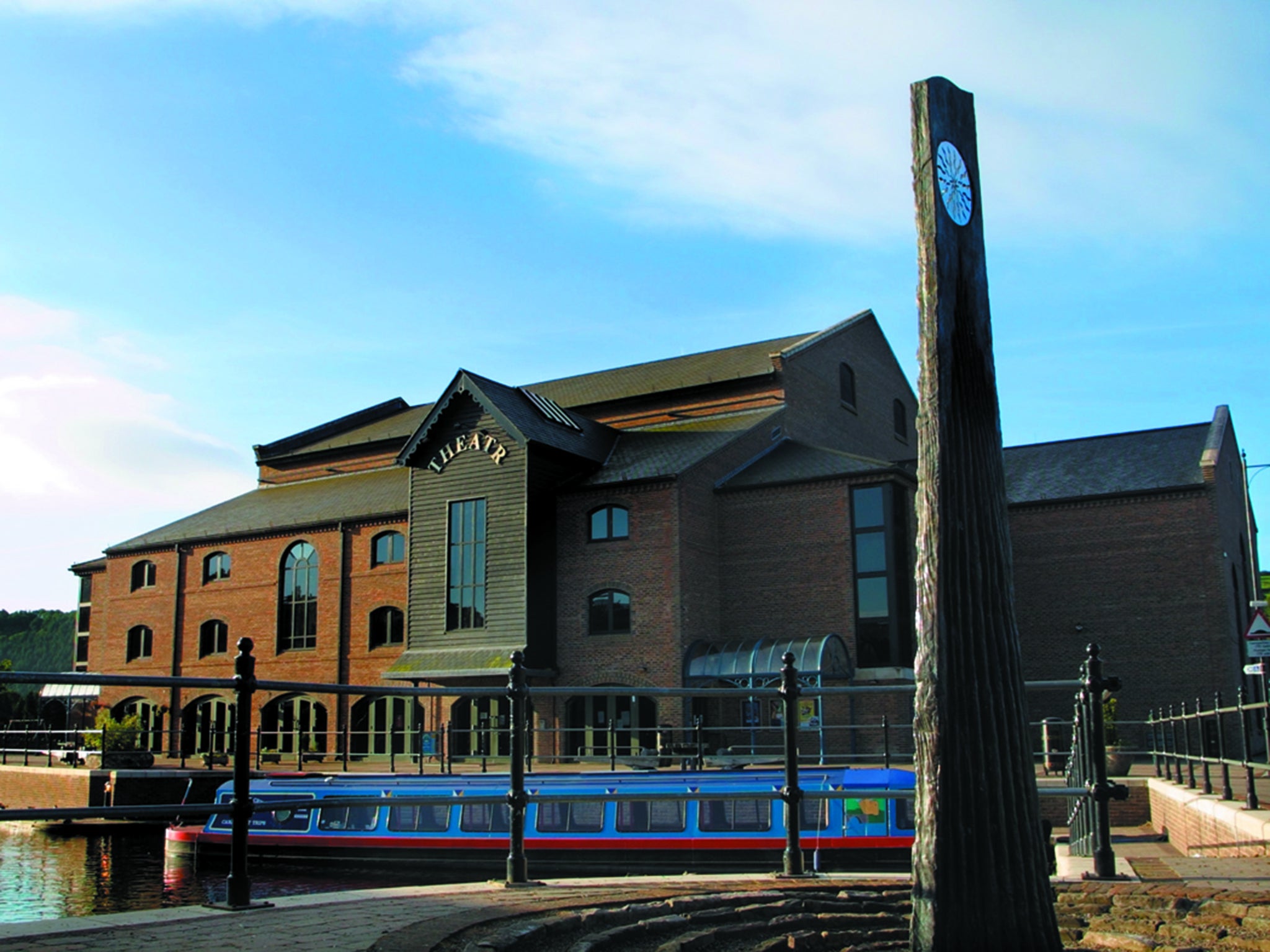British theatres going green as venues across the land do their bit to reduce carbon emissions
'Sustainability becomes a factor, in the same way as time or money'

Your support helps us to tell the story
From reproductive rights to climate change to Big Tech, The Independent is on the ground when the story is developing. Whether it's investigating the financials of Elon Musk's pro-Trump PAC or producing our latest documentary, 'The A Word', which shines a light on the American women fighting for reproductive rights, we know how important it is to parse out the facts from the messaging.
At such a critical moment in US history, we need reporters on the ground. Your donation allows us to keep sending journalists to speak to both sides of the story.
The Independent is trusted by Americans across the entire political spectrum. And unlike many other quality news outlets, we choose not to lock Americans out of our reporting and analysis with paywalls. We believe quality journalism should be available to everyone, paid for by those who can afford it.
Your support makes all the difference.British theatre has really stepped on to the front foot with plays about climate change – from epics such as Mike Bartlett’s Earthquakes in London to personal dramas such as Tanya Ronder’s Fuck the Polar Bear (currently at the Bush Theatre in London) to staged lectures such as 2071 at the Royal Court.
But what is being done – really being done – about sustainability in the sector? It’s all very well consciousness-raising and hand-wringing, but surely action is what’s needed.
Fortunately, many theatres in Britain are beginning to turn green – a change accelerated by the Arts Council putting environmental sustainability into their funding criteria in 2012. Sholeh Johnston, from the charity Julie’s Bicycle who specialise in working with the creative industries on sustainability, is broadly positive: “It’s been one of the most receptive sectors in terms of the speed with which theatres take up [the challenge] – and we see that at every level.”
So that goes for the big companies, as well as the little: ATG, who have 33 theatres in the West End and nationally, employ staff with dedicated responsibly for sustainability, while the National Theatre’s redevelopment is embracing new technologies (LED lights; water supplied through their own bore hole; its own efficient heat and power pump system). Meanwhile, rural venues, such as Theatr Brycheiniog in Brecon, have installed solar panels and LED lighting to slash energy consumption.
Fringe venues, unsurprisingly, lead the way with more radical solutions – the Arcola in east London even makes green-energy hydrogen fuel cells onsite. The Battersea Arts Centre use natural ventilation rather than installing heating and cooling systems. “They’re trying to find ways to keep people better-informed about the conditions – can they put on an extra layer? Of course, that’s not going to work in the West End!” acknowledges Johnston.
Julie’s Bicycle is careful not to go too hard-line; there’s an awareness that what’s groovy for one space would be impractical in another. That said, there are serious gains to be made with air conditioning. For After Miss Julie, the first production in the Young Vic’s “Classics for a New Climate” initiative, the theatre adjusted its heating range to between 18C and 24C, rather than maintaining a steady 22C. They received no complaints – and it helped the show achieve a 40 per cent reduction in carbon emissions.
The next Classics for a New Climate show, La Musica, has just opened. Its carbon budget is 450kg – about half that of the average play in the Maria studio space. A recent main-house show, The Trial, by contrast, came in at about two and a half tons (La Musica’s set is also largely made of their repurposed cast-offs).
“Sustainability becomes a factor, in the same way as time or money,” explains director Jeff James. “There are times when you have to balance the financial budget against the carbon budget.” They could have bought 140 chairs for a pound each from Asda, but opted instead for the sustainable, if more expensive, option of hiring them.
Marguerite Duras’ play is not about climate change, but even so, James wanted to do something “visible and tangible”, to make the show’s environmental commitment “part of the audience’s experience”.
They toyed with installing static bicycles, to have energy generated by a peddling audience, but the set-up would have been more carbon-costing than the savings made. Instead, the lazy among us will be relieved to hear, they’ve opted to experiment with lighting: the first half will be illuminated by streetlight coming through a usually blacked-out window. In matinees it’ll be sun-lit; a non-naturalistic choice, given the play is set at 2am. When they do need additional lighting, it’ll be provided by LEDs – more efficient than the usual tungsten bulbs. But they are, Johnston admits, “contentious”: some in the industry dislike their comparatively chilly light.
So does sustainability prove a creative constraint, leading designers down exciting new paths, or is it having a detrimental aesthetic impact? “I think it’s been a creative constraint; I don’t think we’d have got to the window being open without it,” says Ultz, the show’s designer, while James acknowledges that tackling climate change – professionally and personally – can seem an imposing, even impossible task but that’s why it must be done visibly. “The move to a more sustainable way of living is a cultural change, and therefore the cultural industries have to engage for us to have any chance of achieving it.”
But here’s some good news: going to the theatre is a green activity in and of itself, James insists. “You use less energy being in a theatre than you do at home – you’re not boiling kettles… It is actually a quite sustainable activity!”
‘La Musica’ is at Young Vic, London, to 17 October (youngvic.org)
Join our commenting forum
Join thought-provoking conversations, follow other Independent readers and see their replies
Comments